Iran has vowed a harsh response to the killing of Haniyeh, which took place during his visit to Tehran last month. Iran blamed Israel for the assassination, but Israel has not confirmed or denied involvement. The US Navy has deployed warships and submarines to the Middle East to bolster Israel's defenses.
One of the sources, a senior Iranian security official, said Iran and its ally Hezbollah would launch a direct attack if the Gaza talks failed or if they perceived Israel as dragging out negotiations. The source did not say how long Iran would allow the talks to last before taking action.
With the risk of a wider war spreading across the Middle East heightened by the killing of Mr Haniyeh and Hezbollah military commander Fuad Shukr, the sources, who asked not to be identified because of the sensitive nature of the matter, added that Iran has been engaged in intense negotiations with Western countries and the US in recent days on measures to ensure an appropriate scale of response.
In comments on Tuesday, the US ambassador to Turkey confirmed that Washington had asked its allies to persuade Iran to de-escalate tensions. Three regional government sources described discussions with Tehran aimed at avoiding escalation ahead of Gaza talks, which are scheduled to begin on Thursday in Egypt or Qatar.
"We hope that our responses will be implemented in a time and manner that does not negatively affect the ceasefire negotiations," Iran's envoy to the United Nations said in a statement on Friday. Iran's foreign ministry said on Tuesday that calls for restraint "run counter to the principles of international law."
Iran's foreign ministry and the country's Revolutionary Guards did not respond to requests for comment. The Israeli prime minister's office and the US State Department did not respond to requests for comment.
White House spokesman John Kirby said on Monday: "There could be action taken by Iran and its proxies as early as this week… That is the assessment of the United States as well as Israel."
"If Iran takes action this week, the timing of their action could very well impact the negotiations that we want to have on Thursday."
Over the weekend, Hamas expressed doubts about the possibility of further talks. Israel and Hamas have held talks several times in recent months without being able to agree on a ceasefire.
Israeli Defense Minister Yoav Gallant said during a visit to an intelligence base in northern Israel: "We are determined to complete our mission – we need to ensure the safe return of the people of northern Israel to their homeland, once we have ensured Hezbollah's withdrawal north of the Litani River."
Iran's regional policy is set by the Revolutionary Guards, which report to Khamenei, the country's leader. Iran's new president, Masoud Pezeshkian, has consistently asserted Iran's anti-Israel stance and support for resistance movements across the region since taking office last month.
Meir Litvak, a senior researcher at the Iran Center for Policy Studies at Tel Aviv University, said he believed Iran would prioritize its own needs over helping its ally Hamas, but that Iran also wanted to avoid all-out war.
"Iran has never had a policy or strategy that depends on proxies or patrons. They will definitely attack, but I don't know the timing and scale."
Iran's leaders now want to work towards a ceasefire in Gaza, "to avoid a full-scale war and consolidate their role in the region," said Iran-based analyst Saeed Laylaz.
Iran, which had previously been absent from the Gaza peace process, is now ready to take on a "key role," Laylaz said.
Iran is considering sending a delegation to the ceasefire talks, two sources said. However, they said the delegation would not directly participate in the talks but would instead engage in behind-the-scenes discussions “to ensure diplomatic lines of communication” with the US remain open while negotiations continue.
Iran's envoy to the United Nations in New York said Tehran would not have a delegation on the sidelines of the ceasefire talks. Officials in Washington, Qatar and Egypt did not respond to questions about the possibility of Iran playing an indirect role in the negotiations.
Two senior sources with ties to Lebanon's Hezbollah said Tehran would give negotiations a chance but would not abandon its plans to retaliate.
The Gaza ceasefire would give Iran a reason to mount a smaller, "symbolic" response, one of the sources said.
April Rocket
Iran has yet to publicly say what its response to Haniyeh's assassination will be.
On April 13, two weeks after two Iranian generals were killed in an airstrike on Tehran’s embassy in Syria, Iran launched hundreds of drones, ballistic missiles, and cruise missiles at Israel, damaging two air bases. Nearly all of the weapons were shot down before reaching their targets.
"Iran wants its response this time to be much more effective than the April 13 attack," said Farzin Nadimi, a senior fellow at the Washington Institute for Near East Policy.
Nadimi said such a response would require "thorough preparation and strong cooperation," especially if it involved Iran's network of armed groups opposing Israel and the United States across the Middle East, the so-called "Axis of Resistance," of which Hezbollah is a senior member, which has been in conflict with Israel since October 7, 2023, along with Iraqi militias and Yemen's Houthis.
Two Iranian sources said Iran would support Hezbollah and other allies if these organizations took action themselves in response to the killings of Mr. Haniyeh and Mr. Fuad Shukr.
Nguyen Quang Minh (according to Reuters)
Source: https://www.nguoiduatin.vn/quan-chuc-iran-khang-dinh-chi-co-thoa-thuan-nguoi-co-the-ngan-hanh-dong-dap-tra-204240814171758091.htm





![[Photo] Bustling Mid-Autumn Festival at the Museum of Ethnology](https://vphoto.vietnam.vn/thumb/1200x675/vietnam/resource/IMAGE/2025/10/4/da8d5927734d4ca58e3eced14bc435a3)
![[Photo] Solemn opening of the 8th Congress of the Central Public Security Party Committee, term 2025-2030](https://vphoto.vietnam.vn/thumb/1200x675/vietnam/resource/IMAGE/2025/10/4/f3b00fb779f44979809441a4dac5c7df)
![[Photo] General Secretary To Lam attends the 8th Congress of the Central Public Security Party Committee](https://vphoto.vietnam.vn/thumb/1200x675/vietnam/resource/IMAGE/2025/10/4/79fadf490f674dc483794f2d955f6045)
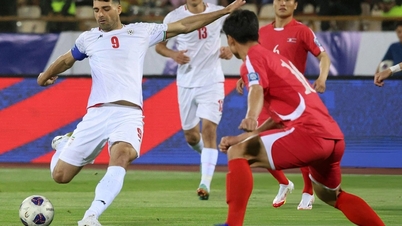



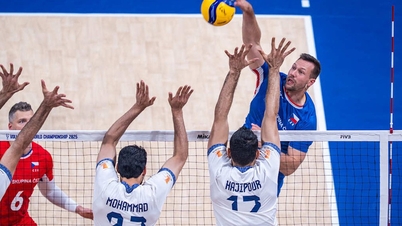



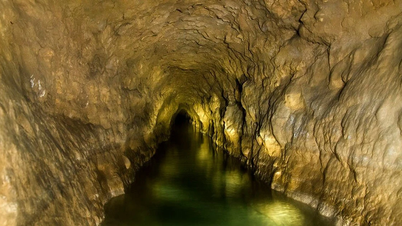




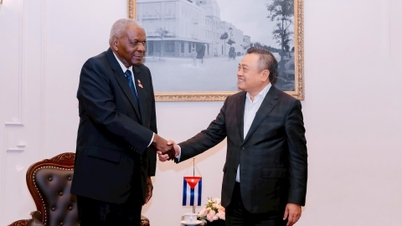
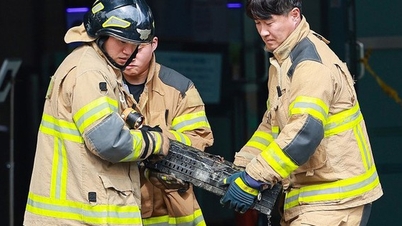

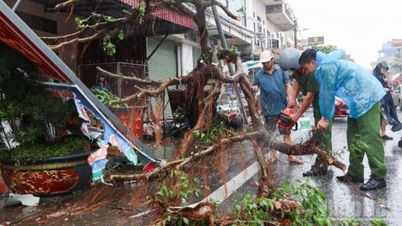



































![[VIDEO] Summary of Petrovietnam's 50th Anniversary Ceremony](https://vphoto.vietnam.vn/thumb/402x226/vietnam/resource/IMAGE/2025/10/4/abe133bdb8114793a16d4fe3e5bd0f12)

![[VIDEO] GENERAL SECRETARY TO LAM AWARDS PETROVIETNAM 8 GOLDEN WORDS: "PIONEER - EXCELLENT - SUSTAINABLE - GLOBAL"](https://vphoto.vietnam.vn/thumb/402x226/vietnam/resource/IMAGE/2025/7/23/c2fdb48863e846cfa9fb8e6ea9cf44e7)

















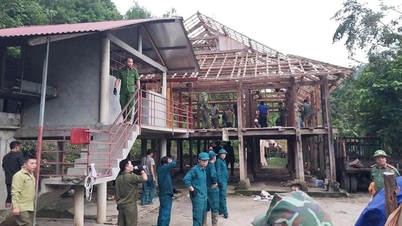
















Comment (0)